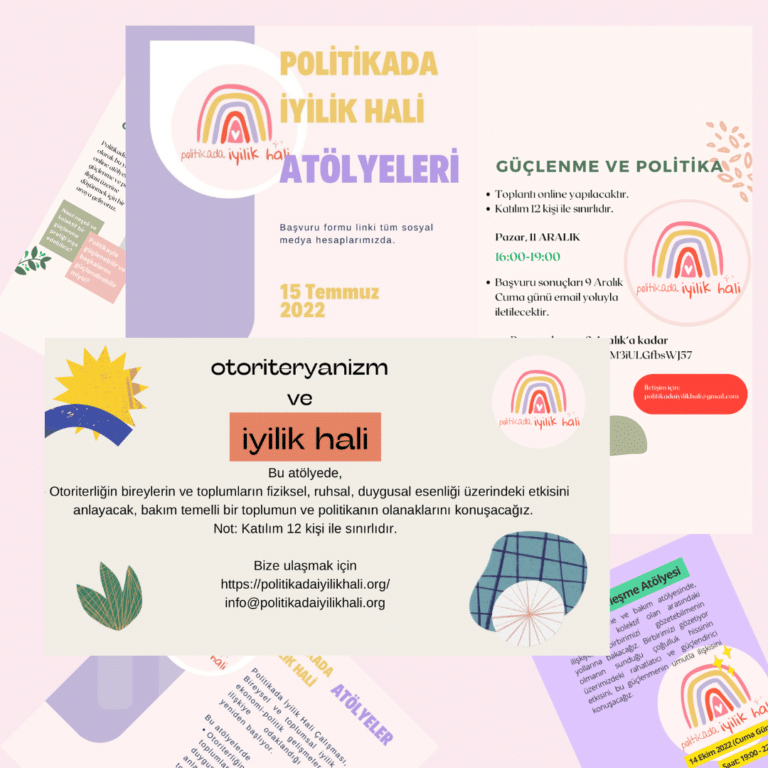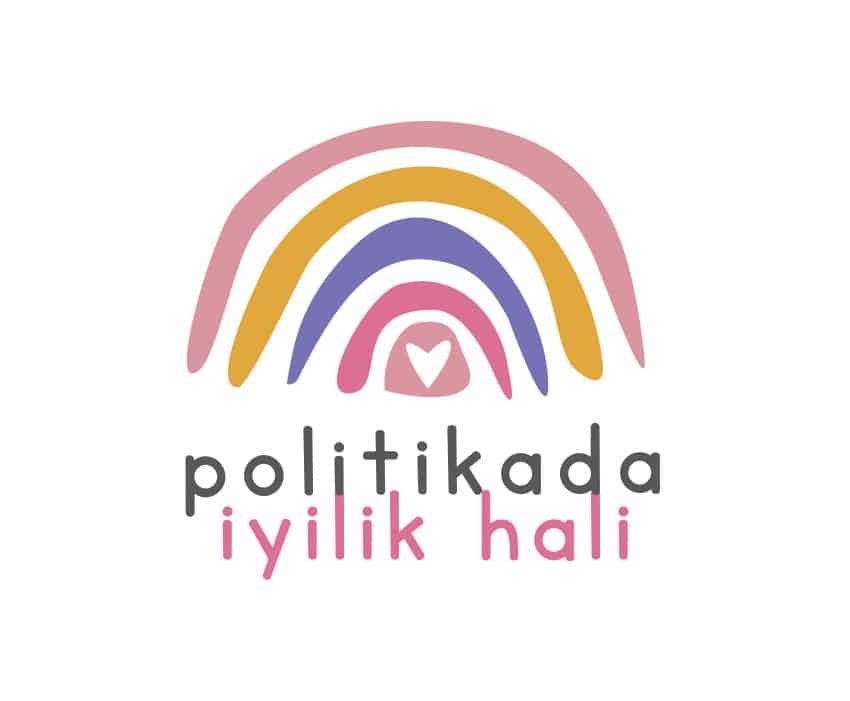Workshops

We organize our workshops both online and face-to-face. Whether the workshop will be online or face-to-face is determined according to the demands of the participants, and the content is also determined in accordance with the needs of the participants.
Our primary goal in our workshops is to run at least two workshops with each specific organization. Feel free to contact us if you have such a request for your organization.
Yet, sometimes we put up online announcements and get together with activists or with those who are interested in political struggle from all over Türkiye.
Feel free to send us an email if you are interested in our workshops, use the guides in the “Practical Information” section of our website and read the recommended resources in the “Resources for the Soul” section.
Our workshops focus on four topics:
Authoritarianism and Well-Being: In this workshop, we explore the general effects of an authoritarian regime on citizens and the specific effects on activists, and lay out a roadmap for a care-based state, a care-based society, and the care-based struggle necessary for achieving them.
The key questions of our workshop are:
- What kind of regime is authoritarianism from the perspective of well-being?
- How does authoritarianism affect all voters and organizations from right to left?
- Where and how do we reproduce the authoritarian methods and perspective we oppose?
- What is the relation between masculine politics and authoritarianism?
- What are the pillars of a care-based political perspective?
Well-Being and Collective Healing: Our workshop focuses on the structural conditions of well-being and the pathways towards collective healing. It points out the indispensable links and possibilities between individual well-being and collective healing, and shows why collective healing is essential for democratization.
The key questions of our workshop are:
- What is well-being? What are the domains and levels of well-being?
- What is the difference between perspectives on political well-being and neoliberal perspectives on well-being?
- What are the structural, social, political and economic conditions underlying individual well-being?
- Where do individual and collective healing paths converge and diverge?
- How does collective healing contribute to democratization?
Transforming Politics with Art: Our workshop focuses on how the one-dimensionality of political struggle, resulting from the expected dedication, seriousness and tendency to focus on failures, can be overcome by drawing inspiration from the perspective of thinking like an artist.
The key questions of our workshop are:
- Which intellectual, physical and psychological limits does the current political understanding construct for those engaged in political struggle?
- What are the possibilities and means of artification of politics?
Care-Based Organizing: The main aim of this workshop is to reveal the relation between the well-being of members of an association/party/platform and organizational empowerment and its importance. The focus of this workshop is on producing alternative mechanisms instead of the current widespread tendencies to externalize criticism, remain blind to criticism/problem solving/alliances, and subordinate the requirements of well-being to politics.
The key questions of our workshop are:
- What is the relation between activists’ individual empowerment and organizational empowerment?
- How to form alliances and coalitions? What are the obstacles to their formation?
- What is the basis and importance of giving and receiving political criticism?
- How to strengthen comradely relationships?
- What are the technical requirements and facilitating mechanisms for individual and organizational empowerment?

